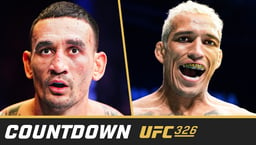
Issue 080
October 2011
How your post-training beer could be killing your workout gains
Simon Jurkiw is training and education manager for the UK’s number-one sports nutrition supplier
The negative effects of alcohol on training and performance are often underestimated. While alcohol is a macronutrient (alongside carbohydrate, protein and fat), the body doesn’t have a specific need for it, so there is no clear benefit in alcohol consumption. Compared to carbohydrate and fat, alcohol is a calorie-dense nutrient with seven calories for every gram compared to four calories per gram for carbohydrate and protein. These extra calories are one reason why those who drink heavily often have unfavorable body composition. For a fighter striving to improve power-to-weight ratio, excess alcohol consumption can make this very difficult.
THE PHYSICAL EFFECTS
The short-term effects of alcohol are fairly obvious; hangovers are going to have a detrimental impact on training sessions. There is no way a hungover training session will be as productive as a training session that is properly fueled. For those who suffer with the dreaded ‘two day hangover’ this can really affect progress. Alcohol also reduces coordination. For a fighter, coordination can be the difference between winning and losing a fight, so excess alcohol is definitely to be discouraged.
Alcohol has a number of less obvious negatives, too. It can reduce the metabolism of carbohydrates during exercise, meaning the body could have less fuel for training. For a fighter performing lots of high-intensity exercise, this would severely impair performance.

Protein synthesis can also be reduced by alcohol consumption. Reducing protein synthesis can hamper recovery, which has a knock-on effect on the intensity of subsequent training sessions. It also means that the body can be more likely to break down muscle – clearly not helpful for increasing power-to-weight ratio. Couple this with an ability to reduce the cross-sectional surface area of muscle fibers, and alcohol can place the body can be in a very catabolic state – where rising cortisol prevents fat loss and promotes muscle loss. To top it off, alcohol can also reduce testosterone levels.
The body’s use of fatty acids is reduced by alcohol consumption. For fighters trying to maintain muscle and lose fat, a reduction in the use of fat as a fuel will make this harder.
Alcohol consumed after training can also impair immune function; because intense training can potentially reduce immune system efficiency the addition of alcohol is clearly a bad idea.
WHAT TO DO
Realistically, few are going to take the option of becoming teetotal, and while not much can be done to prevent the damage that alcohol can cause you can soften a small part of the overall impact. Drinking water during a night out ‘on the beers’ will help, but if your machismo won’t allow then consuming water after you stumble home, or even better a hydration drink, can help to rehydrate and provide electrolytes, aiding fluid balance.
All in all, with a reduction in fat use, reduction in carbohydrate use, reduction in protein synthesis, reduction in muscle fiber size, reduction in testosterone levels and impaired immune function; excess alcohol can make it really difficult for a fighter to progress. If you want to ensure your body can become the championship-winning machine you desire, consider cutting down those all-night benders and chugging a yard of H20 instead.
...









